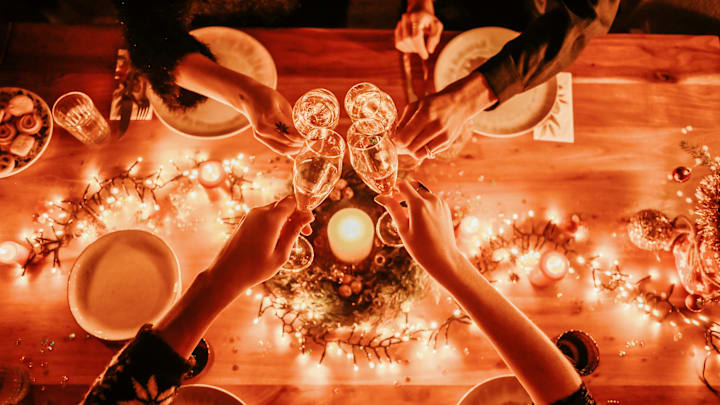More than any other holiday, New Year’s brings out our superstitious sides. Some people will try anything to shed their misfortunes from the previous 12 months and boost their chances of good luck in the year ahead. You may already cook the traditional New Year’s dishes for good luck, but you should also be avoiding the following foods if want to cover all your bases. From chicken to lobster, consider leaving these unlucky food items off your New Year’s Eve and Day menus.
Catfish

While some Southern delicacies like black-eyed peas are associated with good luck for the new year, fried catfish is a no-go. Catfish and other bottom-dwellers are avoided by superstitious diners around the holiday. The thinking is that if you include them on your New Year’s dinner table, you may be condemning yourself to a full year of subsisting on scraps.
Hollow Bread

Home bakers usually aren’t happy to find oversized air bubbles in their freshly baked bread, but this discovery is especially upsetting on New Year’s. Hollow bread is supposedly bad luck because the empty pockets symbolize coffins, and therefore mean imminent death in the next year. Because there’s no way to know what’s waiting inside your loaf until you slice it open, maybe it’s best to skip the bread course until January 2.
Lobster

New Year’s Eve is a time for extravagance, but you should avoid serving lobster with your champagne and caviar if you’re superstitious. Both lobster and crab are considered unlucky items to have on the menu on December 31 and January 1. Because crustaceans can walk backwards or sideways, the idea is that eating one may prevent you from moving forward in the new year.
Chicken

Some people believe that consuming winged fowl like chicken around the new year will bring you bad luck. Their reasoning is that because poultry has wings, they will “fly away” with whatever good fortune you had in store. So if chicken wings are your go-to party food, maybe wait a month until Super Bowl Sunday to serve them. Chickens also scratch backwards in the dirt, and—as with lobsters—this movement is linked with failing to progress in the future.
Tofu

Chinese New Year comes with its own set of superstitions, and one of them forbids ringing in the new year with tofu. The color white is closely associated with death in Chinese culture, so tofu, rice, eggs, and other white foods should be avoided on the holiday. To have the color present in your celebratory feast would be like opening the door to the Grim Reaper in the new year.
Beef

A prime rib may sound like an elegant New Year’s Day entrée, but anyone who’s superstitious may advise against it. Cow meat is also considered unlucky based on the way the animal moves—or doesn’t move, in this case. Cattle graze while standing still, so if you eat beef on the holiday you may be cursing yourself to a year of stagnation. That leaves pork as one of the only “safe” proteins to serve for New Year’s. Pigs forage while moving forward, and beans and greens cooked with pork are considered classic New Year’s dishes.
Broken Noodles

Noodles are generally considered a lucky food to serve for Chinese New Year. Long strands represent good health and longevity, but a bowl of broken noodles may have the opposite effect on your luck. If you slurp short noodles on New Year’s, the fear is that you’ll be doomed to a short life. This superstition isn't universal, however; in Japan, broken soba noodles are considered a lucky New Year’s dish because they symbolize “breaking off” from the previous year.
A Full Plate of Food

No matter how delicious the spread is at your New Year’s party, you should resist finishing your meal if you’re superstitious. Leaving just a bite of food on your plate is meant to guarantee you prosperity in the year ahead. If your plate is filled with lucky foods like grapes, pork, and beans and none of the bad ones, your future will look even brighter.
Discover More Fascinating Stories About New Year’s:
A version of this story was originally published in 2023 and has been updated for 2024.
